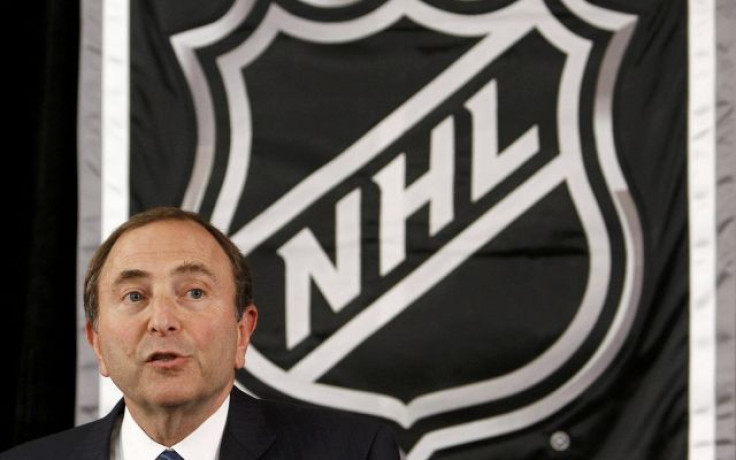NHL Lockout Resolution Rumors Welcome Among Fans, Players And Especially Beer Companies

While the hockey world bashed its head against the wall Thursday with rumors of the NHL lockout coming to an end, sponsors were praying for a resolution for their own reasons. Beer companies in Canada report reduced profits during the two-month holdup that has seen arenas, bars and grocery stores sell less alcohol to lubricate the nation's favorite viewing experience.
“Try to refrain from hyperbole, but sense today is BIG on NHL labor front. Suspect we find out if this is going north or south. Fork in the road,” tweeted Bob McKenzie of TSN. “By the way, just to clarify, I don’t think a deal is imminent. But either on track towards one or getting derailed. That’s imminent…We’ll see where we are at the end of this day and not jump to any conclusions based on partial info.”
McKenzie’s tweets reflected the general consensus in the hockey media, but the urgency, and excitement, was palpable. This news came in the wake of the report the NHL and NHLPA had met for 13 hours over two days earlier this week. Talks are to resume Friday.
The crux of the issue has been the percentage of revenue sharing each party takes home. The players earned 57 percent to the owners’ 43 percent of hockey related revenue (HRR) in the last CBA, a contract that was signed after the league canceled the whole 2004-05 season for similar reasons. The negotiations have been so bitter that, along with top NHL executives storming out of meetings after just minutes, even the definition of HRR has been cause for debate.
The owners appear to have softened their stance on an October proposal that would have immediately split revenue 50/50, an offer the union took as an insult. Now, though, there is word of that split not being enacted for three years, according to CBS News.
The news of any progress will be of similar delight to hockey fans as it will be to sponsors. The NHL announced one week ago the annual Winter Classic outdoor game would be canceled due to a shortened season and lack of preparation time. The event, held every season on Jan. 1, is a cash cow for the league’s sponsors, who have reportedly started turning up the heat on the NHL to avoid canceling the entire season again.
The quiet rinks and empty bars have especially hurt Molson Coors. The business has suffered more in Canada than the United States but CEO Peter Swinburn told the Winnipeg Free Press in an interview Wednesday the business would be seeking more than a receipt from the league.
“It's a national sport. The whole of Canada is glued to it one way or another, so there's no real regional difference at the moment that we can detect,” he said. “There will be some redress for us as a result of this. I can't quantify that and I don't know because I don't know the scale of how long the lockout is going to last.”
Official numbers remain unknown but Coors Light and Molson were expected to be the hardest hit.
“Whether it's people not actually physically going to the venues and consuming there, consuming in venues around the outlet before that, or indeed having NHL sort of parties at home, all of those occasions have disappeared off the map and you just can't replicate them,” Swinburn continued.
Fans would agree.
© Copyright IBTimes 2024. All rights reserved.











